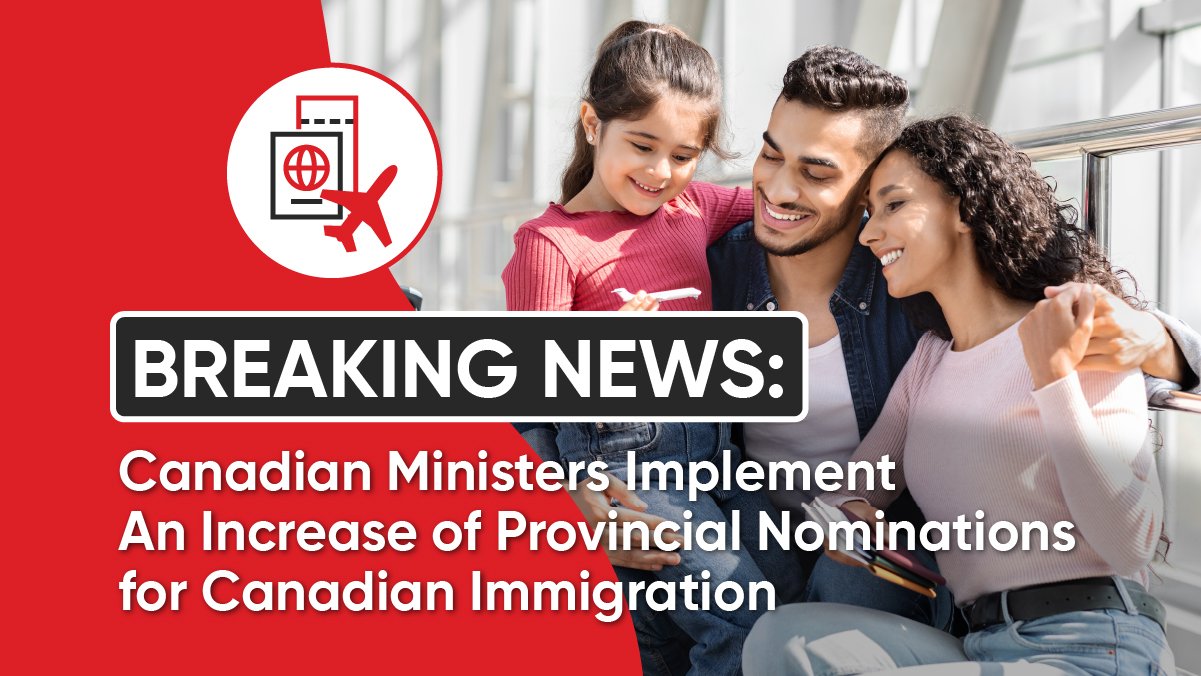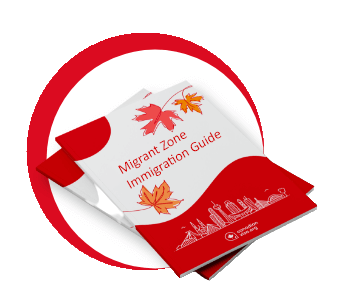
On March 10, 2023, the Forum of Ministers Responsible for Immigration convened at the Canadian Museum of Immigration in Halifax, Nova Scotia to further their dialogue on the fate of immigration in Canada. The Ministers worked together to progress initiatives that address Canada-wide immigration needs and were pleased with the advancement of the Canadian immigration system in order to better serve economic and regional requirements.
PNPs as The Future of Immigration For Canada
The Provincial Nominee Program (PNP) is an avenue of immigration to Canada in which provinces can nominate candidates for permanent residence.
The Immigration, Refugees, and Citizenship Canada (IRCC) is the ultimate deciding factor on who is to become a permanent resident. IRCC also determines the number of Provincial Nominee Program (PNP) nominations to be given in a single year.
The Ministers reviewed progress on elevating the role of provincial/territorial (PT) in selecting economic immigrants and allocating more spots in the Provincial/Territorial Nominee Programs (PNPs). They welcomed IRCC's Multi-Year Allocation Plan, which provides for a 44% growth in PNP allocations for 2023 and includes notional allocations for 2024 and 2025.
The Honourable Sean Fraser, Minister of Immigration, Refugees and Citizenship and federal co-chair of the Forum of Ministers responsible for Immigration stated, “Immigration is key to maximizing Canada’s economic potential, whether it is addressing labour shortages in the short term, or attracting the skills our communities will need for the next generation. I value the relationships with my provincial and territorial colleagues, knowing that these partnerships are crucial to strengthening and improving Canada’s immigration system, and contributing to our long-term economic growth.”
They also reiterated that they are collaborating to formulate an adaptive, customer-oriented economic immigration plan where provinces have greater influence in the selection of economic migrants. The group highlighted the federal and provincial governments' indispensable and unique roles and obligations in creating Canada's immigration system and the importance of having variable and compatible programs.
A Statistics Canada study found that newcomers to Canada who enter through Provincial Nominee Programs (PNPs) tend to have a more successful experience in the labour market than those who come through other immigration pathways. This is due to the fact that those in PNPs have been identified for their connections to a specific province or for their aptitude to thrive in a particular province's labour market.
The Provincial Nominee Program (PNP) is projected to bring in the highest number of immigrants, with a total of 105,500, as outlined in the 2023-2025 Immigration Levels Plan.
Improving The Economic Immigration Process
Updates on the formulation of the Express Entry economic immigration platform and measures to lessen red tape in provincial nominee program applications were presented to provincial ministers. The group discussed the necessity of speeding up federal immigration processing for both short-term and permanent pathways.
The Federal-Provincial-Territorial Immigration Ministers’ Table focused on ensuring the efficiency of the immigration system in meeting economic and regional needs and acknowledged that provincial knowledge of local job market requirements is an advantage that should be utilized.
They discussed how they could move forward with intergovernmental collaboration on immigration objectives and economic immigration in a regional scale, including programs such as the Provincial Nominee Program (PNP) and Atlantic Immigration Program (AIP).
It was determined that the PNP is the main approach for regional immigration and meeting the labour market needs of employers. Ministers agreed that regionalization of immigration is significant and, as immigration targets grow, the capacity of communities to welcome immigrants should be taken into account.
According to The Honourable Arlene Dunn, Minister Responsible for Immigration and Minister Responsible for Opportunities New Brunswick and provincial-territorial co-chair of the Forum of Ministers responsible for Immigration, “Partnership, collaboration, and a shared vision for enhancing Canada’s immigration policies and programs are at the centre of how federal, provincial, and territorial governments navigate the ever-changing immigration landscape. Through today’s meeting we looked to build momentum to further clarify the roles and responsibilities of our respective governments to successfully attract, integrate, and retain immigrants.”
Increasing Access to Settlement Projects
At the meeting, the ministers focused on past, present, and potential future models for settlement services, particularly ways to improve outcomes and retention, such as increasing participation from provincial and territorial governments and additional funding.
They evaluated the current responsibilities of the federal and provincial/territorial governments with regard to settlement services, identifying accomplishments, difficulties, and possibilities.
Ministers agreed that locally informed, accommodating, and responsive services should be provided to immigrants to help them integrate and remain in their province/territory of landing. It was concluded that service delivery models, as well as the roles of the federal, provincial, and territorial governments should be further discussed at the subsequent FMRI meeting.
Ministers consented to take action to keep public backing for immigration steady and to collaborate to guarantee that the long-term FPT immigration and settlement objectives bolster Canada's current and future success. Minister Fraser welcomed his associates to give their input to the recently initiated Strategic Immigration Examination.
The Ministers further discussed settlement and integration efforts, Foreign Credential Recognition (FCR), and Canada's humanitarian response to the situation in Ukraine. They raised the need to have future talks on pathways to Permanent Residency for those Ukrainians who intend to stay in Canada or cannot return to Ukraine.
According to Fraser, “Today, we had productive discussions on shared priorities such as sharing the benefits of immigration through enhancing the Provincial Nominee Program, reducing barriers to Foreign Credential Recognition, addressing irregular migration, and continuing our proud humanitarian tradition by supporting newcomers from Afghanistan, Ukraine, and other vulnerable populations around the world. I look forward to continuing our conversation so that together, we can build an immigration system that is client-centred, and responsive to our country’s social and economic needs.”
For more Canadian immigration news like and follow us below on social media below




